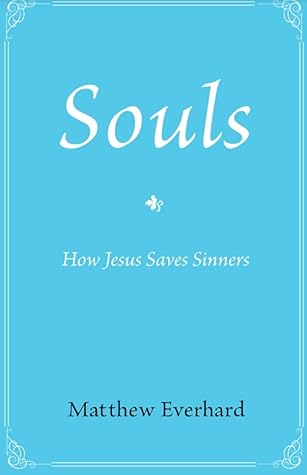Kindle Notes & Highlights
Historic Protestant theology has held that the image of God consists in knowledge and righteousness, as well as a capacity for holiness, reason, and volition.[13]
Though many people do not explicitly recognize that they are actually longing for God, they display their vacuousness by searching for meaning elsewhere. Perhaps in drugs, sex, possessions, or adventure. But in each of these cases, these things only result in more hunger and thirst. They end up being more like drinking the sand of a mirage than finding the fountain of satisfaction.
Creation is designed somehow for intelligent and volitional creatures to respond to the greatness of God with adoration. And the required and appropriate response is indeed praise and worship. Here we must be very careful. We cannot say that God needed to be praised, as though He were not complete without it. We all know people that are like that. They need to be praised. God is not like a woman lacking in self-esteem who has to ask everyone she knows if they like her new haircut. He does not lack confidence as though He needed to make beings that could constantly tell Him how great He is.
Friedrich Nietzsche (1844–1900) contracted syphilis from a brothel, suffered an emotional breakdown, and died in the despair of insanity, perhaps through mercury poisoning intended to treat his syphilis.
Sometimes we even exonerate ourselves by saying things like “I might have made a mistake, but God knows my heart.” Scripturally, this sentiment is a terrifying reality, not a comforting assurance. The heart is seen not as the last vestige of human goodness and purity, but rather the very seat and source of human rebellion.
Religion is empty, self-help is helpless, and behavior modification is impossible. No amount of Hail-Marys or Our Fathers can make up for even one sin. No visitation to a human priest in confession can expunge one’s record. We cannot go on a pilgrimage to Mecca or fast piously during Ramadan to dial back our guilt. We cannot knock on enough doors as the Jehovah’s Witnesses do to erase one tally mark of transgression. The
The Gospel is rather an announcement of something already done. Already accomplished. It is the primary message and content of Christian preaching, Christian evangelism, and Christian missions. Our role here is not to aspire towards it, or live up to it, but rather to repent and believe it. And having believed it, we should also proclaim it.
Remember, history is filled with the blood of many martyrs. But not just any martyr can save. If you or I died on a cross, our blood couldn’t even atone for our own sins, much less anyone else’s.
Today, it is common to sing modern worship songs about Jesus’s death as a demonstration of the extravagance of human worth. Tragically, this places the whole emphasis of the cross on human worth rather than God’s grace. This has it exactly backward. No doubt Jesus’s death was a demonstration of God’s love (John 3:16; Romans 5:8). This we joyfully acknowledge. He truly came to restore the imago dei, the image of God in man. Yet to go no further would be to leave the cross in the realm of spiritual narcissism. Biblically, it is evidence of God’s grace that He should save any sinners at all! The
...more
God Matters. God is the one inescapable reality in this universe. We cannot go on ignoring Him forever. It is He who raises the dead. He who will judge the world. One of the consequences of believing in the resurrection is that we cannot dare to live as though God were just a small part of our lives. I cannot give Him reverence just two days a year on Easter and Christmas Eve. He must become central to me. Dominating even. My whole life must revolve around Him as the earth revolves around the sun. He is not tangential to my purposes, goals, and intentions in life but the very gravitational
...more
Because all of the descendants of Adam and Eve have been contaminated by the death plague of sin, all of the human inhabitants of the globe are in desperate need of the Gospel. Remember, the Gospel is not merely an answer to our sinful condition—it is the only answer.
Antinomianism usually cloaks itself in the language of “freedom” and “personal expression” and suggests that we can go on living just as we did prior to salvation, living as an unbeliever might. It tends to make sin seem light and of little regard. It smirks at the beauty of holiness, “without which no one will see the Lord” (Hebrews 12:14).
Antinomians rarely speak of holiness. They disdain the concepts of obedience, discipline, and sacrifice. Their sermons do not speak of sanctification.
We are more afraid of offending people than we are willing to take risks to bring them to Jesus. I am personally convinced that besides worship itself, the most important thing we can ever do in this life is to share the Gospel with another soul. But where is our zeal to do this? Where is our passion for the lost?


